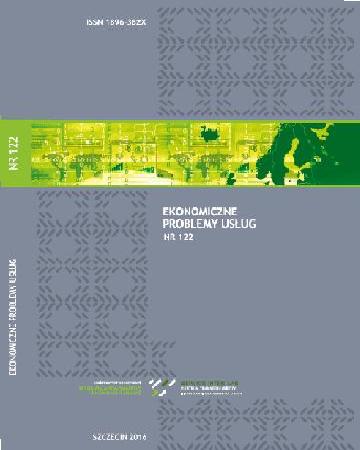
ISSN: 1896-382X
eISSN: 2353-2866
OAI
DOI: 10.18276/epu.2016.122-08



Issue archive /
nr 122 2016
Publiczne zasoby informacyjne w mediach społecznościowych
(Public information resources in social media)
| Authors: |
Joanna
Papińska-Kacperek
Uniwersytet Łódzki Krystyna Polańska Szkoła Główna Handlowa w Warszawie |
| Keywords: | social media e-government digital archives |
| Data publikacji całości: | 2016 |
| Page range: | 10 (93-102) |
Abstract
This article aims at initiating a discussion on the reasons and extend to which public information resources should be available in social media (SM). The article also pro-vides an analysis of the use of SM by public institutions. It highlights the problems associated with archiving information resources on the profiles in SM. Moreover, it presents the dangers ensuing from the use of SM and results of a survey conducted among Warsaw School of Economics and the University of Lodz students on the exist-ence of state administration in SM.
Download file
Article file
Bibliography
| 1. | Alam S.L., Campbell J., Lucas R. (2011), Using Social Media in government: the Aus-tralian taxation office e-tax Facebook page, w: Dependable, Autonomic and Secure Computing (DASC), 2011 IEEE Ninth International Conference. |
| 2. | Espley S., Carpentier F., Pop R., Medjkoune L. (2014), Collect, Preserve, Access: Ap-plying the Governing Principles of the National Archives UK Government Web Ar-chive to Social Media Content, „Alexandria”, No. 25 (1–2). |
| 3. | Gao H., Barbier G., Goolsby R. (2011), Harnessing the Crowdsourcing Power of Social Media for Disaster Relief, „IEEE Intelligent Systems” 26 (3). |
| 4. | Jayakumar A. (2015), This start-up is helping the government keep track of social media, „Washington Post”, May 24. |
| 5. | KE (2006), Online Availability of Public Services, Report of the 6th Measurement, Capgemini. |
| 6. | Mickoleit A. (2014), Social Media Use by Governments: A Policy Primer to Discuss Trends, Identify Policy Opportunities and Guide Decision Makers, OECD Working Papers on Public Governance, No. 26, OECD Publishing. |
| 7. | NARA (2013), White Paper on best practices for the capture of social media re-cords, National Archives and Records Association. |
| 8. | Nowina-Konopka M. (2014), Problematyka zarządzania informacją w procesie archi-wizacji zasobów Internetu, „Media – Kultura – Komunikacja Społeczna” 10/1. |
| 9. | OECD (2011), Social Media Technologies and Tax Administration, OECD. |
| 10. | Panagiotopoulos P., Bigdeli A.Z., Sams S. (2014), Citizen – government collaboration on social media: The case of Twitter in the 2011 riots in England, „Government In-formation Quarterly”, Vol. 31, Issue 3. |
| 11. | Papińska-Kacperek J. (2013), Usługi cyfrowe. Perspektywy wdrożenia i akceptacji cyfrowych usług administracji publicznej w Polsce, Łódź: Wydawnictwo UŁ. |
| 12. | Polańska K. (2013), Sieci społecznościowe. Wybrane zagadnienia ekonomiczno- |
| 13. | -społeczne, Oficyna Wydawnicza, Warszawa: SGH. |
| 14. | Postman J. (2009), SocialCorp: social media goes corporate, Berkeley: New Ri-ders. |
| 15. | Ustawa o dostępie do informacji publicznej z dnia 6 września 2001 r. (DzU nr 112, poz. 1198). |